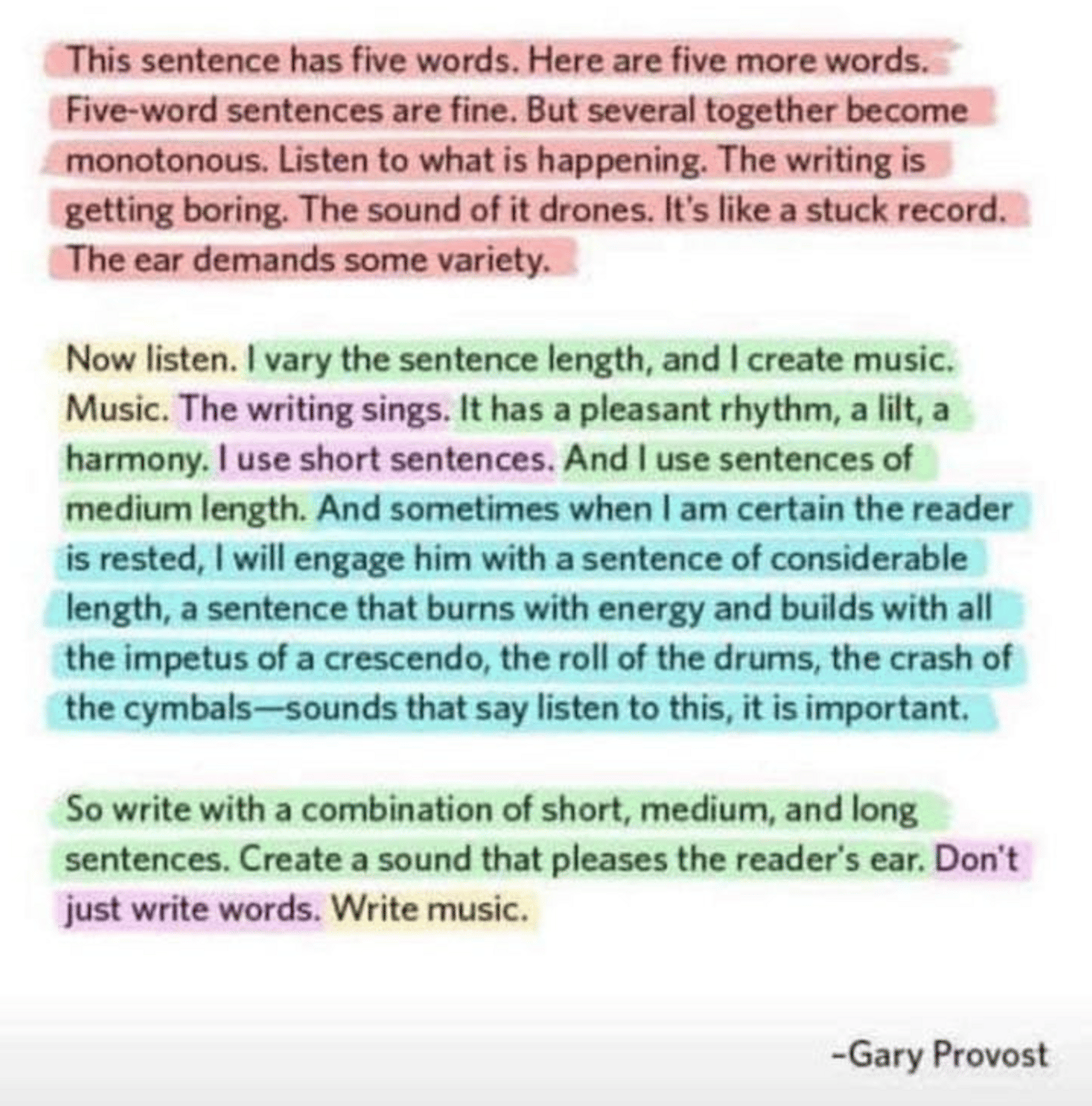- The Optimalist
- Posts
- Pieces and posts
Pieces and posts
The 1 thing about writing no one (well hardly anyone) is talking about
There’s a crazy amount of ghostwriters out there on X and LinkedIn.
Pretty crowded market. Saturated even.
And they all give advice:
“Post these 3 types of content”
“If you want to attract your ideal clients, you have to provide value”
“Comment on Dan Koe’s account to steal his audience”
Fine.
That stuff basically all works.
But none of them really talk about writing.
Copywriting, sure.
But not the nuts and bolts of creating great writing. Or even ghostwriting, which is a whole nother thing entirely.
And let me tell you, there’s a whole lot more to writing ghostwriting than just creating viral posts and hooks.
No, you have to nail the voice of the person you’re writing for.
It’s crazy that no one talks about this.
It’s such a big deal.
So, I figured I’d give you my thoughts on it after 4 months of ghostwriting for my clients.
Let’s jump in.
Voice
Remember: poor writers convey information; good writers convey emotion.
The goal when writing online is to create a human connection.
And the best way to do this to use an authentic writing voice.
What is a writing voice?
To me, it’s made up of 2 things:
Tone
Prose
Tone conveys the emotions behind the words, while prose is how smoothly and naturally (rhythm) the writing flows.
Let’s look at each.
Tone
Tone is essentially how the writing makes you feel when you read it.
Do you feel happy, sad, energized, drained, thoughtful, mad, etc, after reading a piece or post?
Well, that’s the tone coming through.
And tone is a inherent byproduct of your writing style.
Everyone has a writing style, whether you like it or not.
It’s best to be cognizant of what it is right now, and cultivate the tone you want.
Here’s a quick master class on style from my friend Katie:
In a sea of bland, imitative content:
What's your writing style?
Great writers have a distinctive style:
Woolf – fluid
Orwell – clear
Dickens – lively
Morrison – lush
Austen – refined
Fitzgerald – elegant
Hemingway – minimalist
Shakespeare – rhetoricalNow you… x.com/i/web/status/1…
— Katie Musgrave (@ikatiemusgrave)
2:44 PM • Oct 22, 2024
And here’s what I came up with for my ideal style and tone based on Katie’s post:

Your job as a writer (or ghostwriter) is to figure out what your style (or your client’s style) is.
A quick way to find out is to take 2-3 of your favorite pieces of writing (any length) and do either of these:
run the, by your favorite writer friend to get their analysis of your style
put them in an LLM and prompt it to give you an analysis of your style using the descriptors from Katie’s list above.
Prose
Prose is how writing flows.
It’s how you guide readers smoothly from one idea to the next, ideally mimicking your natural speaking voice.
I’m of the writing camp “write like you talk.” Especially when writing non-fiction and X posts.
Everyone speaks with a specific rhythm. There’s a natural flow you use when speaking about something you care about. And the closer you can get to this when writing, the better.
Here’s a great example I look at from time to time:

Everyone has their own version of this.
If you hate yours, find someone else’s you like, and copy them.
Once you understand the importance of prose in creating a natural flow, you can use these techniques to make your writing feel more authentic and engaging.
There’s a couple ways to really nail this:
Record yourself (or your client) talking, and transcribe it exactly.
Look for patterns, ie., short sentences, long sentences, phrases, flow, etc.
When writing, read passages out loud after writing them. After a while you’ll start doing this in your head in your own (or client’s) voice.
And that’s it!
As always, I hope this was helpful.
Cheers,
Swanagan
P.S., if you aren’t following Katie or reading her emails, fix that now:
Newsletter: https://craftpolish.carrd.co/
X profile: https://x.com/ikatiemusgrave